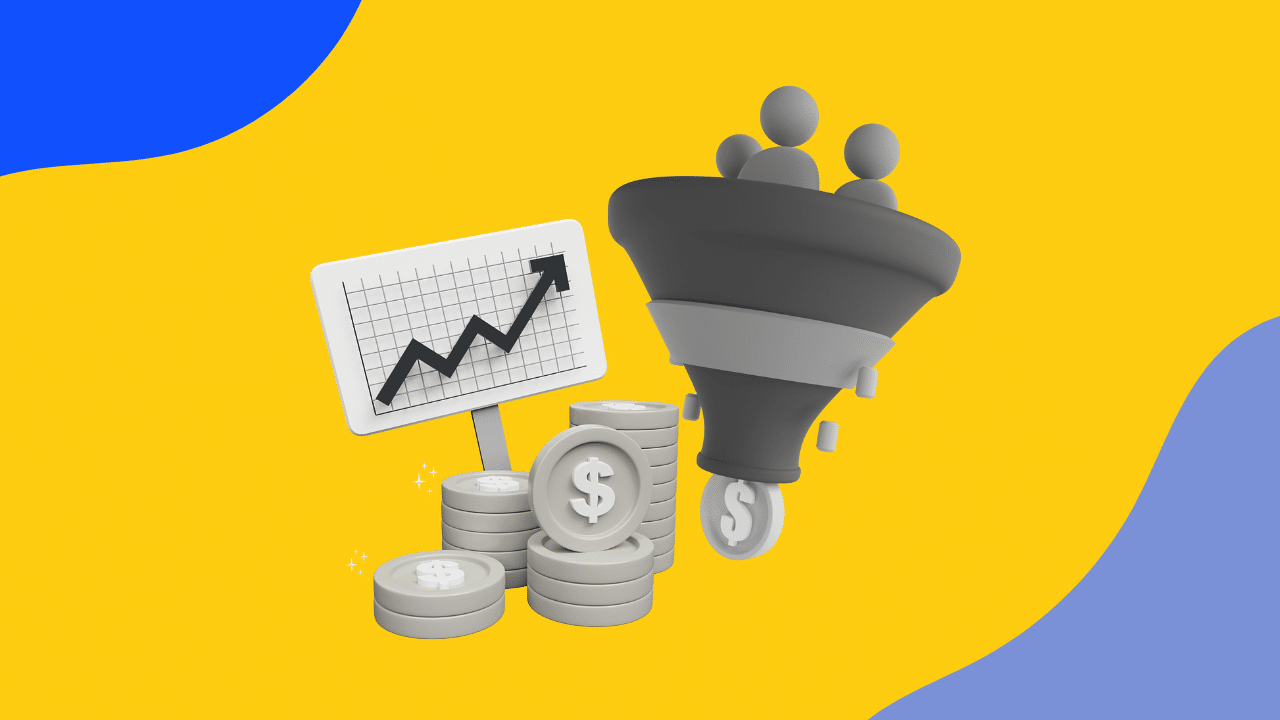
- Google Ads, SEM
Recent articles
our mailing list
SEM 101: Google Ads Guide

Search engine marketing or SEM is all about getting your website in front of people who are searching for products or services like yours on search engines like Google or Bing. Getting to page 1 of Google is the goal of most marketing managers and business owners, for good reason. When was the last time you checked out page 2 or page 3 even?
Exactly.
We’ve covered how to improve your SERP ranking through SEO (check out our in-depth guide) so today we’re exploring how to use paid methods to reach more potential leads.
What's involved in SEM?
Before we get started, here’s a brief overview of some key terms we’ll be exploring.
If you’re looking to make a big impact and fast, then Google Ads and PPC are your new best friends.
These two tools are the dynamic duo of SEM, allowing you to target specific keywords and demographics, and quickly drive traffic to your website.
With Google Ads, your website can appear at the top of the SERPs almost immediately, and with PPC you only pay when someone clicks on your ad.
It’s like having your own personal advertising superhero, ready to save the day (and your business) from obscurity.
So, let’s dive into how you can use these tools to create a comprehensive search engine marketing plan!
Setting Up Your Google Ads Campaign
Choosing Your Campaign Yype
Are you ready to take your Google Ads campaign to the next level?
It’s time to choose the right campaign type!
With several options available, you can choose the one that fits your goals like a glove.
Search Campaigns
First up, search campaigns!
These are the most common campaign types, displaying your ads on Google search results pages when people search for keywords related to your business.
These campaigns allow you to capture people’s attention at the exact moment they’re looking for what you offer.
Display Campaigns
Next, display campaigns!
These campaigns let you reach people as they browse other websites or apps.
You can use engaging ad formats like banners and videos to get your message in front of a wider audience.
Video Campaigns
Do you have a knack for creating video content?
Then, video campaigns are for you!
These campaigns allow you to promote your video content on YouTube and other video platforms.
You can even use targeting options to show your video ads to specific audiences, such as people who have already visited your website.
Smart Campaigns
If you’re looking for a simpler way to get started with Google Ads, consider smart campaigns!
These campaigns use Google’s machine learning technology to create and manage ads for you, helping you get results without having to do much work.
They’re the easiest way to automate your campaigns and get your ads up and running, but it does come with a caveat – Advertisers have limited control, and lack access to detailed analytical reports.
Performance Max Campaigns
Finally, we have performance max campaigns!
These campaigns are designed to maximise your results across multiple campaign types.
Google tries to show these ads across all of their inventory (Search, Display, YouTube, Gmail and Maps) therefore it has a broader reach compared to a regular search campaign.
You can set your campaign goals and let Google’s AI do the heavy lifting to optimise your campaigns for maximum performance.
Choosing Your Campaign Goals
What do you want to achieve with your Google Ads campaign? More website traffic? Increased sales? Brand awareness?
It’s important to set specific goals before you start creating your campaign.
Think about what success looks like to you and what metrics you want to measure.
Are you looking for more clicks, conversions, or impressions?
By setting clear goals, you’ll be able to measure the success of your campaign and make adjustments as needed.
Creating A Budget
How much do you want to spend on your Google Ads campaign?
Creating a budget is a crucial step in the campaign creation process.
You can choose to set a daily or monthly budget, and Google will help you estimate how many clicks and impressions you can expect for that budget.
Keep in mind that different keywords and ad formats may have different costs, so it’s important to do some research and set realistic expectations.
Ad Groups and Keywords
Organising Your Ads Into Ad Groups
When creating a Google Ads campaign, it’s important to organise your ads into ad groups.
An ad group is a collection of ads that target a specific set of keywords.
Ad groups make it easier to manage and track the performance of your ads.
By grouping together similar keywords and ad copy, you can tailor your ads to specific search queries and ensure that they are relevant to potential customers.
For example, if you’re selling shoes, you might create ad groups for different types of shoes, such as running shoes, dress shoes, and casual shoes.
Each ad group would contain ads that are relevant to the specific type of shoe, along with keywords that are related to that type of shoe.
This way, when someone searches for “running shoes,” they’ll see an ad that is specifically tailored to running shoes.
Organising your ads into ad groups also makes it easier to track the performance of your ads.
You can see which ad groups are driving the most clicks and conversions, and make adjustments as needed.
Choosing Relevant Keywords
Choosing the right keywords is crucial to the success of your Google Ads campaign.
But don’t worry, Google’s Keyword Planner tool is here to help.
This tool helps you find keywords that are relevant to your business and provides data on the search volume and competition for each keyword.
Plus, you can filter the results based on factors like location and language to make sure you’re targeting the right audience.
When using the Keyword Planner tool, start by entering a few keywords that are related to your business.
The tool will then generate a list of related keywords, along with data on the search volume and competition for each keyword.
Another useful feature of the Keyword Planner tool is the ability to see related keywords that you may not have thought of.
This can help you discover new keyword opportunities that you may have missed otherwise!
Are You Using Negative Keywords?
Negative keywords are search terms that you want to exclude from your campaign.
By including these in your campaign, you’ll not only save money on your ads but also improve the quality of your clicks.
No more wasting precious advertising dollars on people who aren’t interested in your products or services!
Creating Effective Ad Copy
How can you make sure your ad copy is driving clicks and conversions?
By creating effective ad copy, of course.
Your ad copy should be tailored to your target audience and speak directly to their needs and pain points.
Use clear and compelling language to highlight the benefits of your products or services.
Don’t forget to include a strong call-to-action that encourages potential customers to take action.
Hot tip: Ask ChatGPT to review your ad copy and jazz it up as needed
Bidding Strategies
Types of bidding strategies
Bidding strategies are the heartbeat of any online advertising campaign.
They dictate how much you pay for each click, conversion, or impression. There are several types of bidding strategies, including:
- Manual bidding
A hands-on approach that requires you to set your bids manually for each keyword, ad group, or campaign
- Automated bidding
An AI-driven approach that uses machine learning algorithms to optimise your bids automatically based on your campaign goals
- Target CPA bidding
A strategy that focuses on achieving a target cost per acquisition.
- Target ROAS bidding
A strategy that maximises your return on ad spend
- Enhanced CPC bidding
A strategy that adjusts your manual bids to increase the likelihood of conversion.
Choosing The Right Bidding Strategy For Your Campaign
Choosing the right bidding strategy is crucial for the success of your online advertising campaign.
There is no one-size-fits-all strategy, as each campaign has its unique goals, budgets, and audience.
For instance, if your campaign’s goal is to maximise conversions, you might want to consider using target CPA bidding.
However, if you’re looking to maximise your return on investment, target ROAS bidding might be a better fit.
Before choosing a strategy, it’s essential to understand your campaign goals, analyse your historical performance data, and experiment with different bidding strategies.
Setting Bids and Bid Adjustments
Setting your bids and bid adjustments is an important step in any bidding strategy.
When setting your bids, it’s essential to consider several factors, including:
- Keyword competitiveness
- Target audience
- Ad quality
- Landing page experience.
Bid adjustments allow you to increase or decrease your bids based on specific factors such as device type, time of day, or location.
For example, if you notice that your mobile ads have a higher conversion rate than your desktop ads, you might want to increase your mobile bid adjustment.
Similarly, if you notice that your ads perform better during specific hours of the day, you can set bid adjustments to increase or decrease your bids during those hours.
By setting bids and bid adjustments, you can ensure that your ads are reaching the right audience at the right time and maximise your campaign’s performance.
The Importance Of A Holistic SEM Strategy
To recap, here are the key takeaways:
- Choose campaign goals that align with your business objectives
- Create a budget that allows you to achieve your goals without overspending
- Select relevant keywords and create effective ad copy
- Organise your ads into ad groups and use negative keywords to refine your targeting
- Choose the right bidding strategy and set bids and bid adjustments accordingly
- Choose the right campaign type that aligns with your goals and target audience
By following these tips and taking a data-driven approach to your Google Ads campaign, you’ll be able to see measurable results and drive business growth.
Leverage Google Ads With The Support Of Sydney Digital Marketing Agency™
If you’re in over your head when it comes to Google Ads then don’t worry.
Hand off your marketing stress to a team of seasoned Google Ads specialists based right here in Sydney!
We’re not just any digital marketing agency – we’re a full-scale team of experts dedicated to providing you with top-notch Google Ads support, SEO assistance, and so much more.
Whether you’re looking for help with campaign management or want to completely revamp your online presence, we’ve got you covered.
So what are you waiting for?
Let us take the reins and help you achieve your digital marketing goals. Reach out to the talented team at Sydney Digital Marketing Agency™ today.







